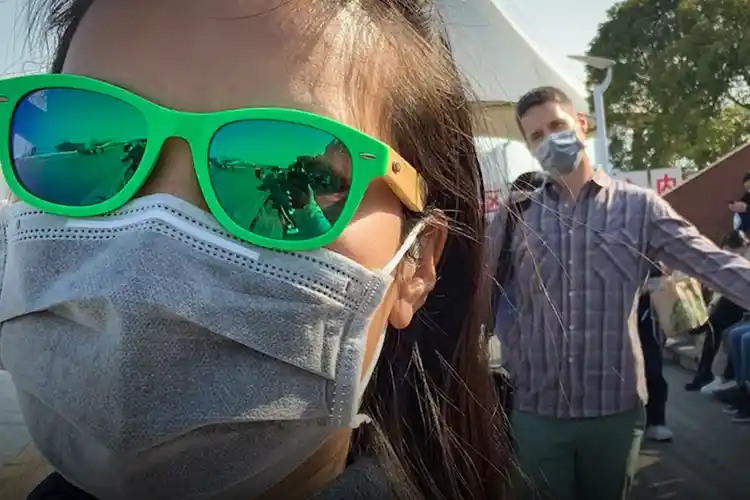Mike Shanghai COVID-19 Social Story

Hide Video Transcript
Video Transcript
MIKE
I'm Mike. I grew up in the United States, been living in China for about nine years now, six years in Shanghai already. Roughly 23 million people live in Shanghai. From Shanghai to Wuhan, it's about 500 miles. Total cases that hit Shanghai was pretty low. Everybody in China was worried to some extent. With each passing day, I think more people started to wear their masks, or keep distance from other people, or stay inside their home.
Most of the buildings here are really tall apartment buildings. In my complex, totally, there are 50,000 people. So one of the first actions they took was to seal off the entrances to the community.
You have a security guard and a couple of other people helping him out to check everybody's temperature, and then check their ID card for the community. They were taking it seriously in the beginning. And they're still taking it seriously.
So most of the restaurants and bars were closed up until about two weeks ago. When you enter a restaurant or a bar or really anything, even a mall, there's a person at the front, and they'll take your temperature with a-- sort of a digital device, and then require you to also sign in. So you put your name and your phone number.
This was never done by the government themselves or the police. It's a community-based effort, pretty much, to control who's coming in and out, because it's still a risk. By no means is it gone. But it's-- it's getting a lot better.
It has to be a societal thing. You know, we have to all get through this together. It can't be the government saving us, or the police enforcing it. It really has to be a society who makes the decision that, OK, we're going to do this, because it's going to help us get back quicker.